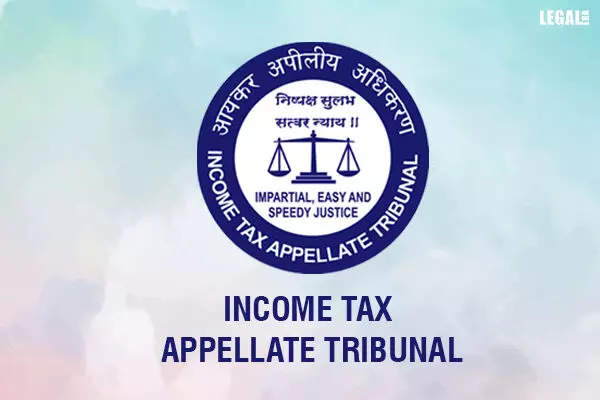- Home
- News
- Articles+
- Aerospace
- Artificial Intelligence
- Agriculture
- Alternate Dispute Resolution
- Arbitration & Mediation
- Banking and Finance
- Bankruptcy
- Book Review
- Bribery & Corruption
- Commercial Litigation
- Competition Law
- Conference Reports
- Consumer Products
- Contract
- Corporate Governance
- Corporate Law
- Covid-19
- Cryptocurrency
- Cybersecurity
- Data Protection
- Defence
- Digital Economy
- E-commerce
- Employment Law
- Energy and Natural Resources
- Entertainment and Sports Law
- Environmental Law
- Environmental, Social, and Governance
- Foreign Direct Investment
- Food and Beverage
- Gaming
- Health Care
- IBC Diaries
- In Focus
- Inclusion & Diversity
- Insurance Law
- Intellectual Property
- International Law
- IP & Tech Era
- Know the Law
- Labour Laws
- Law & Policy and Regulation
- Litigation
- Litigation Funding
- Manufacturing
- Mergers & Acquisitions
- NFTs
- Privacy
- Private Equity
- Project Finance
- Real Estate
- Risk and Compliance
- Student Corner
- Take On Board
- Tax
- Technology Media and Telecom
- Tributes
- Viewpoint
- Zoom In
- Law Firms
- In-House
- Rankings
- E-Magazine
- Legal Era TV
- Events
- Middle East
- Africa
- News
- Articles
- Aerospace
- Artificial Intelligence
- Agriculture
- Alternate Dispute Resolution
- Arbitration & Mediation
- Banking and Finance
- Bankruptcy
- Book Review
- Bribery & Corruption
- Commercial Litigation
- Competition Law
- Conference Reports
- Consumer Products
- Contract
- Corporate Governance
- Corporate Law
- Covid-19
- Cryptocurrency
- Cybersecurity
- Data Protection
- Defence
- Digital Economy
- E-commerce
- Employment Law
- Energy and Natural Resources
- Entertainment and Sports Law
- Environmental Law
- Environmental, Social, and Governance
- Foreign Direct Investment
- Food and Beverage
- Gaming
- Health Care
- IBC Diaries
- In Focus
- Inclusion & Diversity
- Insurance Law
- Intellectual Property
- International Law
- IP & Tech Era
- Know the Law
- Labour Laws
- Law & Policy and Regulation
- Litigation
- Litigation Funding
- Manufacturing
- Mergers & Acquisitions
- NFTs
- Privacy
- Private Equity
- Project Finance
- Real Estate
- Risk and Compliance
- Student Corner
- Take On Board
- Tax
- Technology Media and Telecom
- Tributes
- Viewpoint
- Zoom In
- Law Firms
- In-House
- Rankings
- E-Magazine
- Legal Era TV
- Events
- Middle East
- Africa
ITAT: Employees’ Contributions Not Deposited Within Due Dates Under PF and ESIC Acts Not Eligible For Deduction

ITAT: Employees’ Contributions Not Deposited Within Due Dates Under PF and ESIC Acts Not Eligible For Deduction
The bench referred to the decision of the Supreme Court in a previous case
The Mumbai bench of the Income Tax Appellate Tribunal (ITAT) has clarified that depositing the employees' contributions before the due date of filing the Income Tax Return (ITR) as per Section 139 of the Income Tax Act, does not make it eligible for deduction.
The bench of Narendra Kumar Choudhry (judicial member) and Prashant Maharishi (accountant member) referred to the decision of the Supreme Court in the Checkmate Services Pvt Ltd vs. CIT (2022) 143 taxmann.com 178 case.
It reiterated, ‘The sum collected from employees, if not deposited within the due dates prescribed under the respective Provident Fund Act and the ESIC Act, is disallowable, irrespective of whether it was deposited before the due date of filing the ITR.”
The assessee company, engaged in the business of trading equipment and accessories, filed its ITR showing a total income of Rs.92,50,710.
On scrutiny, the assessing officer (AO) noted that in the tax audit report, the employees' contribution of Rs.7,87,510 was paid beyond the due date prescribed under the Provident Fund (PF) Act. This should have been deposited before the due date. The assessee also deposited the ESIC of Rs.27,124 under the Employees' State Insurance Corporation (ESIC) Act beyond the due date. However, the AO made the disallowance of Rs.8,14,634.
The judges observed that the assessee collected the PF and ESIC from the employees, without depositing the same within the specified dates under the PF and ESIC Acts. However, these were added within the due date prescribed for filing the ITR.
The ITAT stated that the AO made the disallowance, which was confirmed by the Commissioner of Income Tax (Appeals) under the provisions of Section 2(24) (x) r/w Section 36(1)(va) of the IT Act, and dismissed the appeal of the assessee.



